Thousands gather across UK to demand clean rivers, beaches and lakes
Protesters call for an end to sewage discharges into all bathing and high-priority nature sites by 2030

Your support helps us to tell the story
From reproductive rights to climate change to Big Tech, The Independent is on the ground when the story is developing. Whether it's investigating the financials of Elon Musk's pro-Trump PAC or producing our latest documentary, 'The A Word', which shines a light on the American women fighting for reproductive rights, we know how important it is to parse out the facts from the messaging.
At such a critical moment in US history, we need reporters on the ground. Your donation allows us to keep sending journalists to speak to both sides of the story.
The Independent is trusted by Americans across the entire political spectrum. And unlike many other quality news outlets, we choose not to lock Americans out of our reporting and analysis with paywalls. We believe quality journalism should be available to everyone, paid for by those who can afford it.
Your support makes all the difference.Thousands of people across the UK gathered at beaches, rivers and lakes on Saturday to demand change in the country’s water pollution levels.
Protesters gathered at swimming spots from West Pier in Brighton to Gyllyngvase Beach in Falmouth following reports that millions of litres of raw sewage were pumped into Windermere in the Lake District for 10 hours in February.
Some held signs and placards calling for clean oceans while others wore costumes as people were seen paddle-boarding out into the ocean.
Among the demands from activists was an end to sewage discharges into all bathing and high-priority nature sites by 2030.
The campaign, coordinated by Surfers Against Sewage (SAS), saw protests at more than 30 locations.
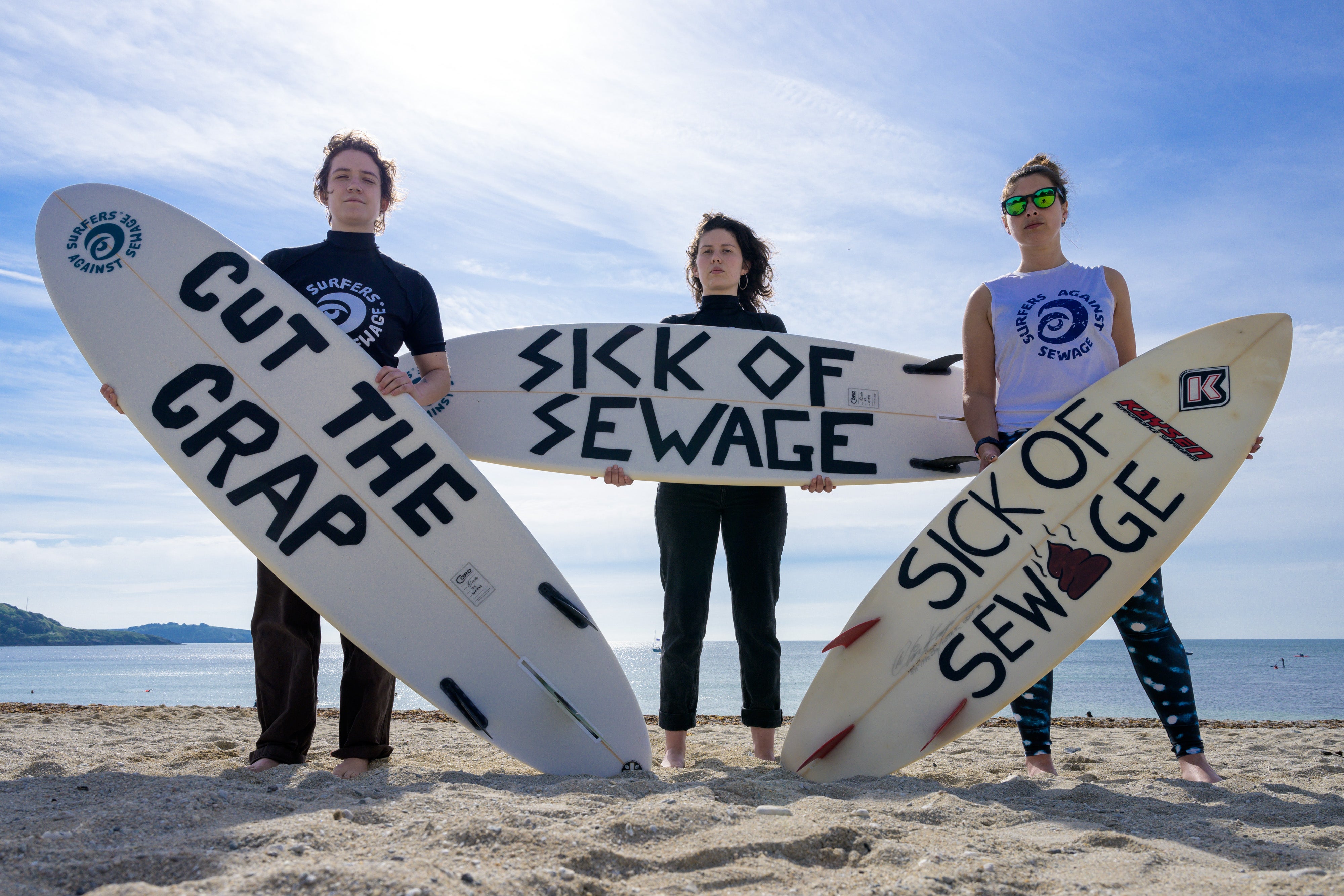
In Brighton, Olympic gold medal runner and keen paddle-boarder Dame Kelly Holmes addressed demonstrators through a megaphone before leading dozens in a paddle-out.
In Falmouth, surfers paddled out en-masse while sea-kayakers carried placards on their boats calling for fish not faeces. Meanwhile, more than 200 people entered the water at a wild swimming spot at Ferris Meadow Lake in Surrey.
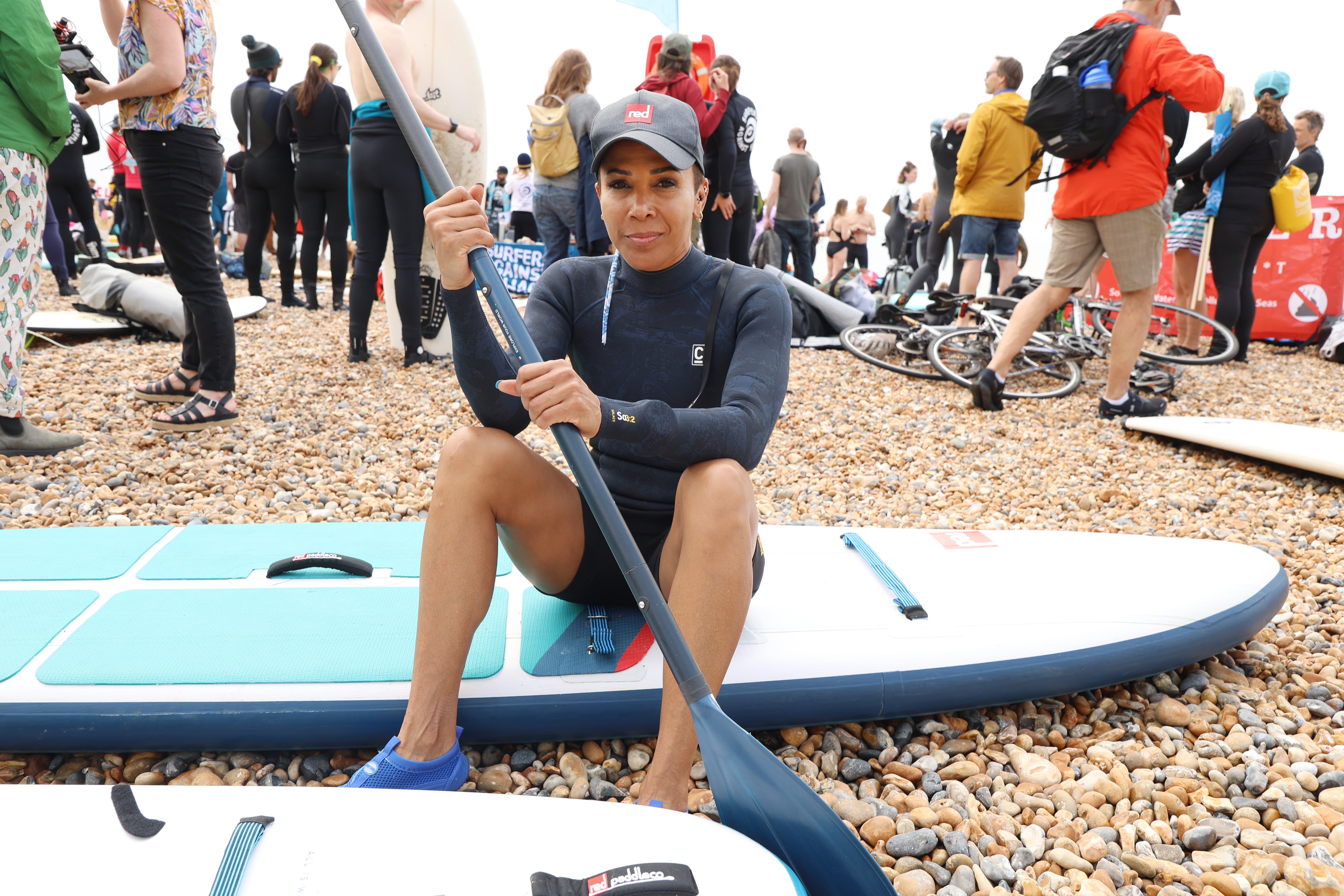
Emma Jackson, who organised the Shepperton Open Water Swim event, said she was contacted by SAS after setting up a campaign to save the lake from the River Thames Scheme, which will build a new flood relief channel through the area.
She said the lake naturally cleans itself and was much safer to swim in than the Thames but, under the proposal, the lake would be connected to the river, leaving it in danger of contamination.
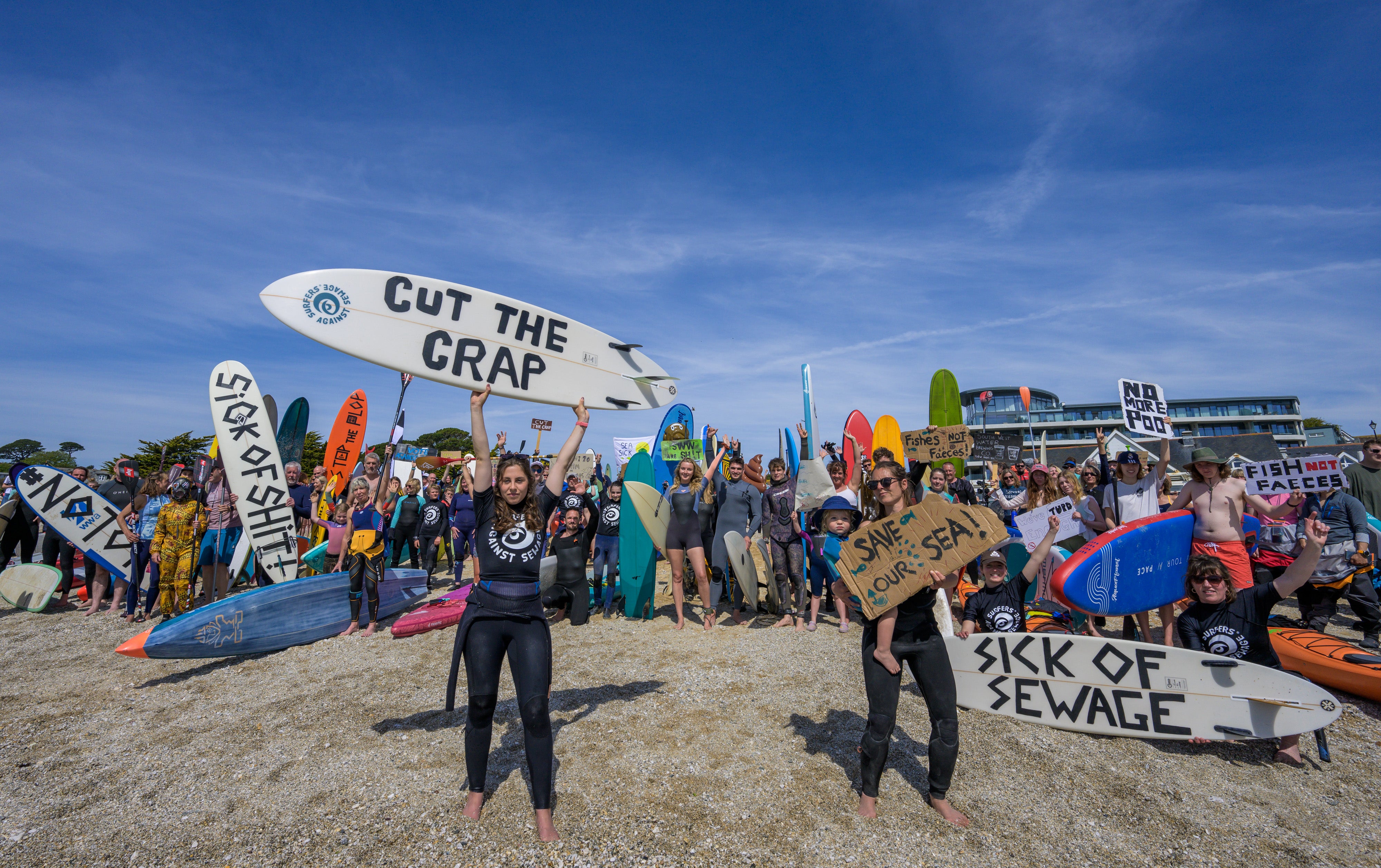
She said she could not imagine being unable to swim at the lake if it became unsafe, adding: “I don’t want to think about it. Today is the first day of the season here at Shepperton Open Water Swim and I can tell you, speaking to my community of swimmers, they are all just over the moon to be back and it is a really special place for us.
“There are plenty of spaces you can swim, there are other lakes in the local area, there are other bodies of water that are equally as safe and we can we can swim in but… this place holds a special place in a lot of people’s hearts.”
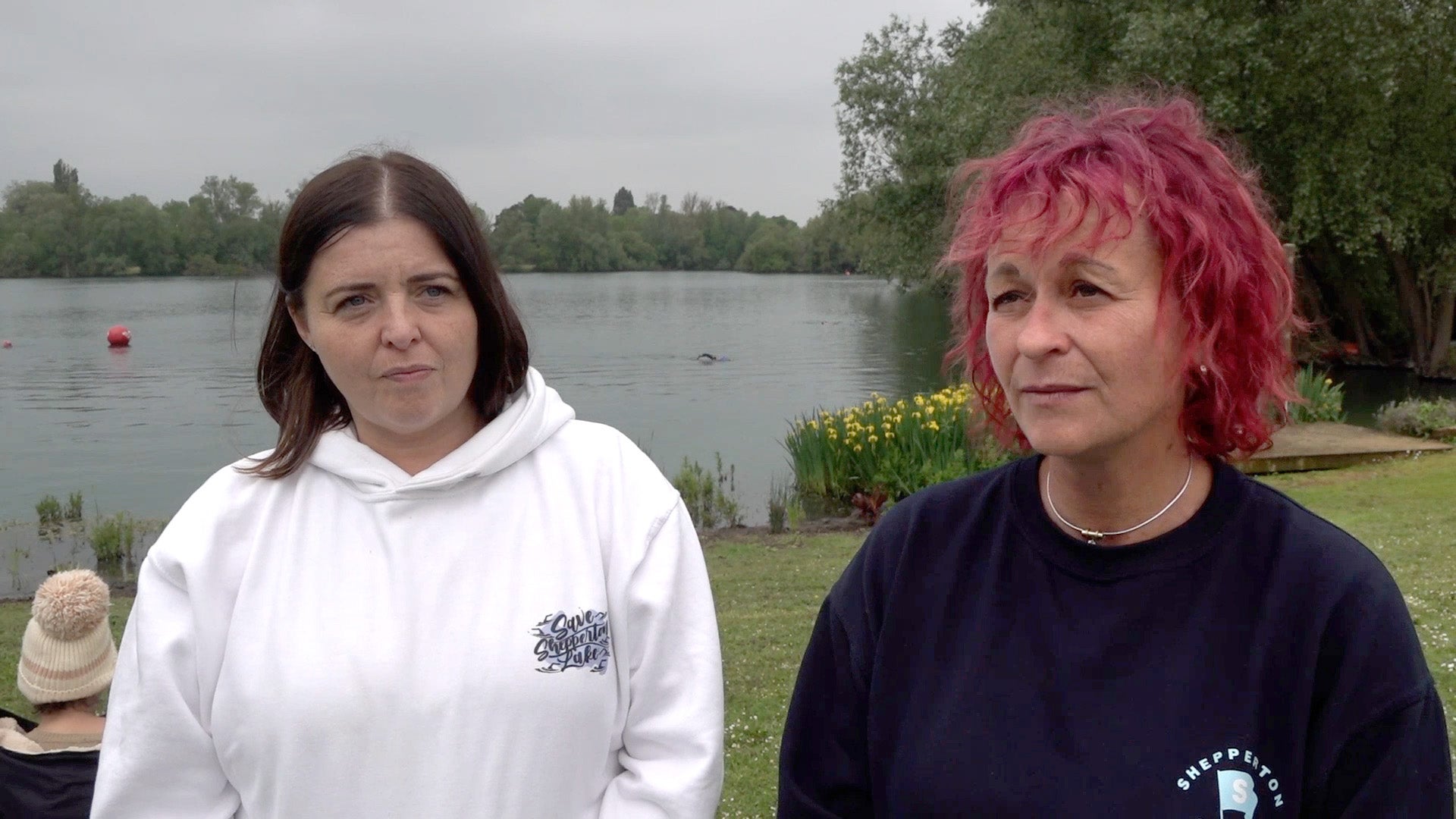
Dinah Sershi, 54, and Georgina Palffy, 55, who are regular swimmers at the lake, attended the protest.
Ms Palffy said they would feel “bereft” if they were no longer able to swim there due to water contamination.
“We do swim in other places, but none of them are quite as magical as this, and none of them have the amazing clean water that they get here, which is something really special,” she said.
Ms Sershi said swimming at the lake was particularly important for women who are going through the menopause.
“I’m particularly passionate about swimming here,” she said. “I’m a woman in my 50s. And I know a lot of people in this community are in their 40s and 50s and find the water an incredible way of managing the menopause symptoms.”
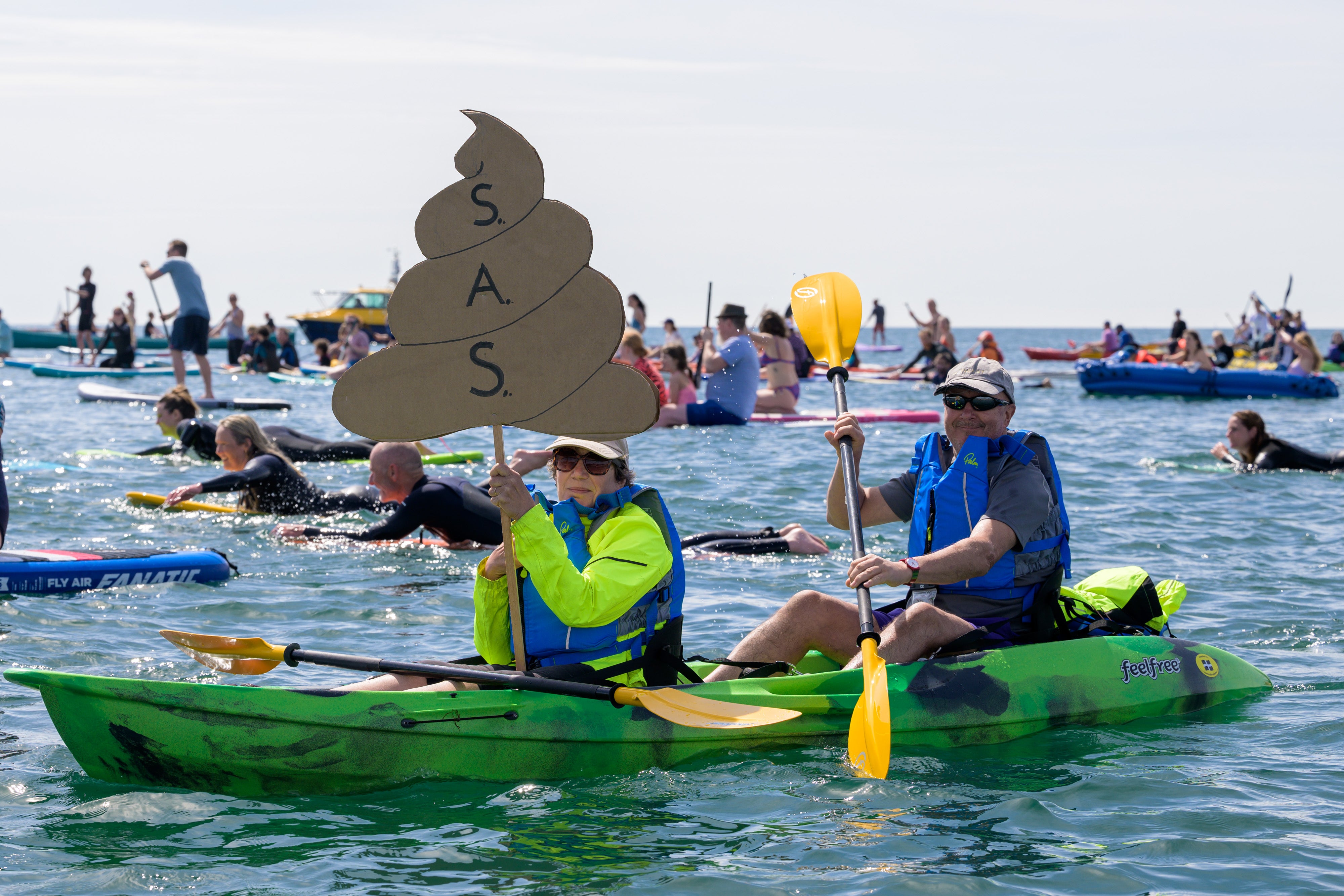
Emma Pattinson, 55, whose family operates Shepperton Open Water Swim, said there was an “alternative route” for the River Thames Scheme, which would circumvent the lake.
“Obviously we don’t want anyone to be flooded on our behalf,” she said. “But we also want this lake to retain its clean water for our swimmers. It matters a lot to them.”
The protests came after raw sewage was pumped into Lake Windemere for nearly 10 hours in February after a telecommunication failure at a pumping station operated by United Utilities, a major water and wastewater services provider in the North West.
The situation was labelled a “scandal” by opposition politicians, while Downing Street said it was “completely unacceptable” and that the Environment Agency had the power to launch a criminal prosecution if necessary.
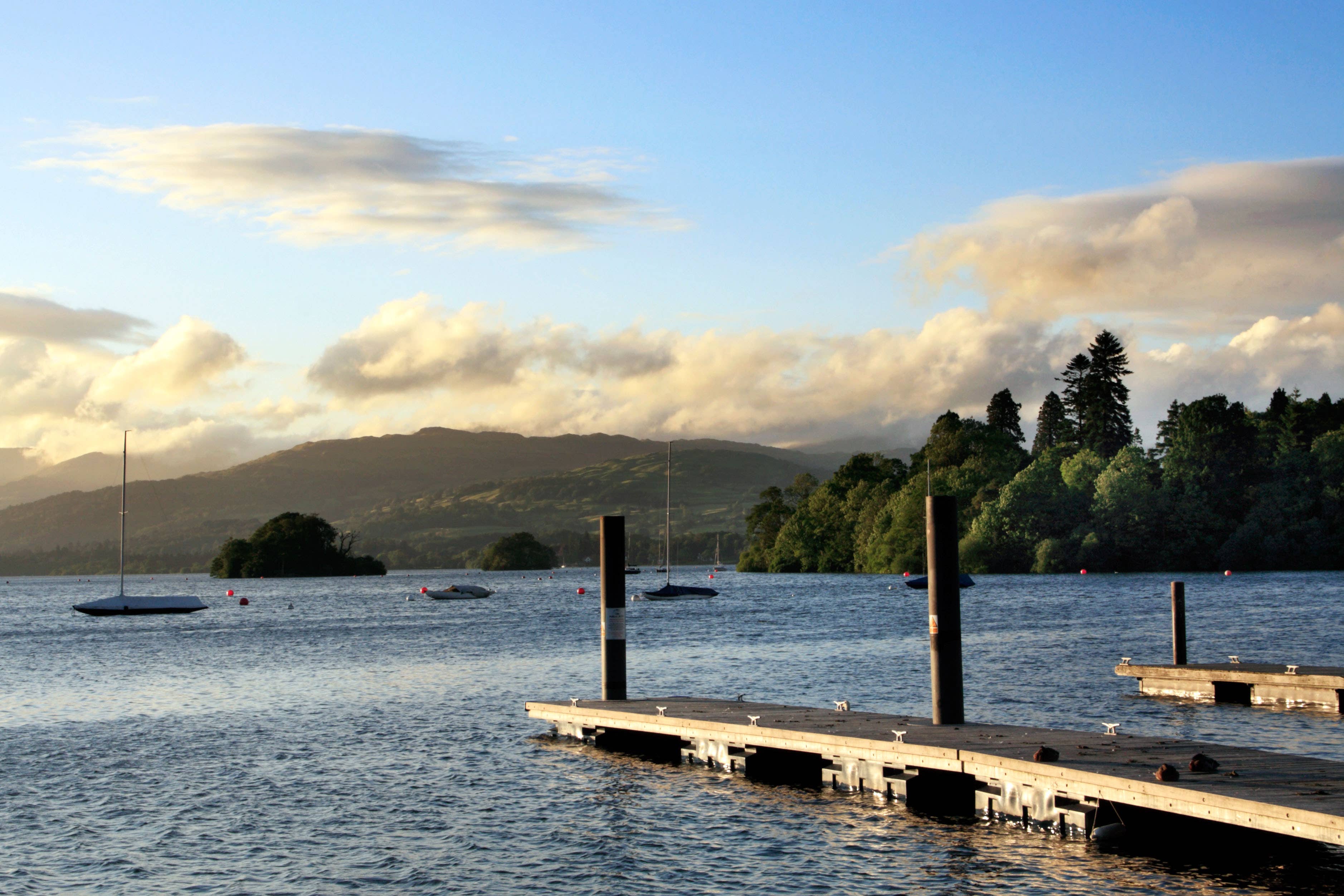
The discharge happened at the company’s pumping station at Bowness-on-Windermere in Cumbria on the night of 28 February and intermittently the following day.
The emergency pumps discharged more than 10 million litres of raw sewage into the Unesco world heritage site after the main pumps abruptly stopped due to a telecom fault, insiders at the firm told BBC News, whose report also cited internal documents from the company.
The latest incident comes amid warnings from environmental agencies that swimming and other activities in and around some of the country’s rivers and lakes could be hazardous due to high levels of sewage pollution.
There were 68,481 incidents of sewage released into England’s seas last year, totalling 440,446 hours, campaign group Friends of the Earth said on Wednesday after analysing Environment Agency data.
Join our commenting forum
Join thought-provoking conversations, follow other Independent readers and see their replies
Comments